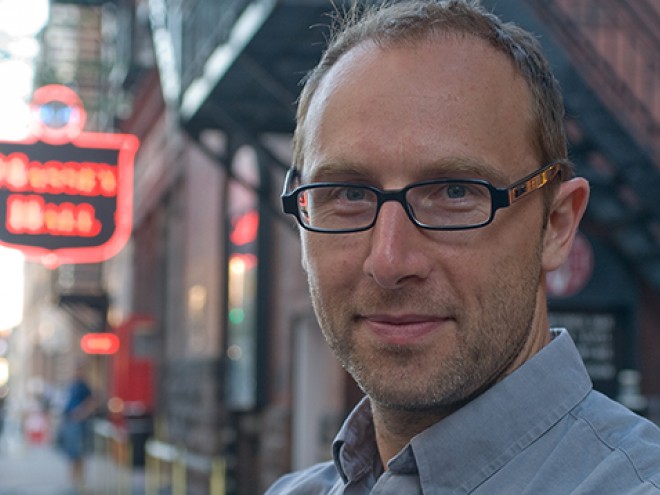In his much-celebrated debut collection of stories, Natasha (2004), David Bezmozgis joined an emerging generation of young “immigrant” Jewish writers (Gary Shteyngart and Lara Vapnyar among them) who take the comedy of new world arrival, the pathos of new world adjustment as their subject. Born in Riga, Latvia in 1973, Bezmozgis emigrated with his parents to Toronto in 1980. In his stories Bezmozgis revealed, in the tradition of Philip Roth, a wicked satiric eye for the hypocrisies of the Canadian version of an alrightnik middle class as well as a deeply empathic heart regarding the fate of the older Jewish generation, displaced and adrift in the disorienting wilderness of 1980’s Toronto. A nostalgia for the nostalgia of old world Jews — as in the great story “Minyan” — marks Bezmozgis’s best work.
In his much-anticipated new novel, The Free World, Bezmozgis returns to his core story of displaced Jewish families in transition from the Former Soviet Union, but in this case the novel offers a “back story,” a historically- resonant prelude to the interconnected tales of émigrés in Natasha. Now Bezmozgis’s canvas widens, as he explores a little-known chapter in the history of the Diaspora: the world of FSU Jews awaiting their fate in and around Rome during the summer and fall of 1978, when the USSR, under pressure from the US and Israel, loosened its borders, allowing Jews to emigrate.
In The Free World we meet the Krasnanskys, a three-generation family from Latvia, in the middle of their journey out. There’s a “back story” to each family member, and each employs a method of negotiating the fraught experience of uprooting in the face of the unknown. What new modes of selfhood will the unimagined “free world” bring? Can uprooting ever enact a fresh start? As we follow the Krasnansky family anxiously awaiting news of another homeland, we discover that the past continues to haunt the present; above all, that Jewish memory — as figured in the deepest emotional recesses of the family’s patriarch Samuil, a staunch believer in the Communist cause — continues to seep through, despite the USSR’s efforts to quash religious feeling and ritual. The Free World thus deepens Bezmozgis’s core themes of Jewish memory and unabashed admiration for the older generation as it reveals him to be a novelist of the first rank.
David Bezmozgis Around the Web
Gal Beckerman in conversation with David Bezmozgis
David Bezmozgis’s book soundtrack for The Largehearted Boy
Twitter Book Club
Read a transcript from the Twitter Book Club for The Free World.
Donald Weber writes about Jewish American literature and popular culture. He divides his time between Brooklyn and Mohegan Lake, NY.



